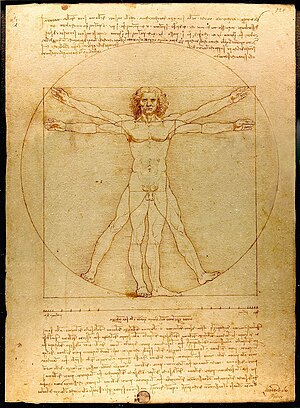I've shown the connections between James Burke's "Connections"(and "the Day the Universe Changed") and Jacob Bronowski's last thoughts about the nature and origin of all knowledge(in his Origin of Knowledge and Imagination).
As perhaps my readers know, while James Burke tries to complicate things, it's really not so complicated(with some qualifications, like the Babylonian and some Egyptian mathematics, the Greeks started the mathematical exploration of the universe; the city of Alexandria housed on the worlds knowledge; it was burned down for various reasons, dark ages, and then Renaissance, with some qualifications there; this is the major pattern of western civilization with some influence from the Eastern. Then, the connections between various mathematics and science/technology from the Greek times to todays.). And so, after showing the connections, my blog bogged down a little.
The fact that I havn't been able to say much more(and likewise James Burke's history of science and technology) shows one thing; humanity is a young species. There's things to be said right there; The line from us to the apes goes back four plus million years; it's all quite hard to believe that for instance tens of thousands of years went by without much more going on than the cave paintings; but, then again, Humanity is a young species. Maybe we'll find new archaeology of the last tens of thousands of years(there has been some recent findings that pushes technology back, and even I've posted about some stuff suggesting Homo Erectus boating hundreds of thousands of years ago!).
People before the steam engine thought they were smart and maybe even nice/mature people. But, really, they were only mildly more sophisticated than the cave painters. It's only with the steam engine that civilization(regardless of the people) became much more than the cave painters. But! Those who did logical proof had taken a step above those who could/would not think factually/logically. And, that goes for those who created new mathematics. The difference between the Pyramid builders and the Neolithic stonehenge builders was a mathematical one. Likewise, the difference between the stonehenge builders and the cave painters was a mathematical one. The difference between the Greeks and the Egyptians and the Babylonians was deductive proof. Of course, only a small percentage of people took that step; it's always been a fight between those who want to progress and those who don't. This fact alone perhaps shows the problems of why humanity has had long stretches of not progressing. Of why we would think of say that the reason why there isn't much more stories of connections for a james burke is because we're such a young species, even if we're not!
But, for the mathematician, except for a dark ages here and there, there is so many connections that can be talked about! In the 1700s, mathematicians had created enough differential equations knowledge to dwarf all of Greek mathematics; differential equations has of course continued to advance either because of itself or because of new mathematical developments; they've generalized galois theory for differential equations; they've generalized differential equations because of lie theory. Then in the 1800s, mathematics went 'abstract.' Non-euclidean geometries and abstract algebras were discovered; they could make up alternative geometries and algebras. In the late 1800s, topology was established and we've been in the topology era ever since really. If you look at the 1900s history of mathematics books, they always stop short around early 1930s or so; they might try to make a few remarks about later work, but, it seems that the amount of mathematics created in the twentieth century has been to much for anybody to really get a hold of it; some people have tried to give histories of mathematics according to say 'solving of the Hilbert problems" or the mathematics of the fields medals; either one reveals details the other doesn't shed light on. I've yet to see a Eric Temple Bell, or a Morris Kline give the definitive history of 20th century mathematics. I remember seeing a book from an early 1900s mathematicians who wrote the history of determinants; it goes to five thousand pages! As far as I can tell, the recent solving of the Poincare conjecture leaves mathematicians baffled of the meaning of it all; they say they're not sure if the fruits of it will be understood a century hence. I would argue the meaning of fractals and transcendental numbers is still not understood(there's been a recent breakthrough in fractals and permutation of numbers); George Cantor in the 1800s showed that the rational numbers and the integers are the same size infinity; but, the real numbers are larger size infinity!(what size infinity is your god?). The transcendental numbers are an even larger size infinity! Yet, we only use two transcendental numbers; Pi and the e constant. I'm starting to wander in all this!
Needless to say(if we destroy ourselves before establishing ourselves in space; hence securing the species probably forever), our species is young and may die young. This goes into the whole Extraterrestrial civilizations topic. Perhaps this dawning reality will go the furthest to get humanity over it's past irrationalities than anything else. I'm leaving without addressing all the issues like "Fermi's question", should we or shouldn't we contact or give our positions away to Extraterrestrial intelligences, and so on.

No comments:
Post a Comment